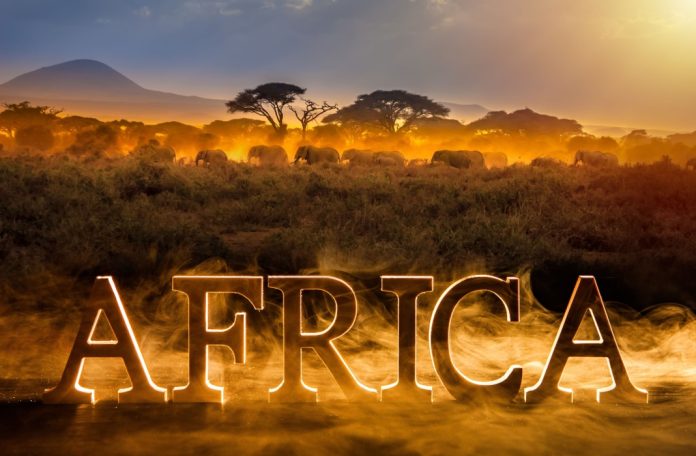The African market is one of great complexity and monumental opportunity.
Given the fragmented nature of the region and each jurisdiction’s nuances, operators looking to expand their footprint in Africa need to be meticulous and develop a deep understanding of what players desire.

In the first part of a two-part series, Tekkorp’s Conor O’Donovan examined this as he revealed that two key strategies can lead to success in Africa.
“You can enter organically by getting a license or acquiring an early stage business with a license. It’s important to be well aware that there are 54 countries in Africa all presenting a very different scenario.
“Some of them are more established than others, with some still governed by a Ministry of Finance, with different levels of ease when it comes to doing business.
“If you’re going to enter organically, you need to do a deep dive on the most suitable territories. Operators need to ensure they aren’t too risk exposed if they’re dipping their toes in the African waters.”
He revealed that the minimal size of many markets, means a lot of the larger operators instinctively look to Nigeria, Kenya or South Africa upon eyeing African expansion, as collectively, those three markets generate billions of pounds in revenue.
Nonetheless, he warned that “they all have their own challenges. Nigeria has massive currency issues amongst other things, Kenya has a horrible and unstable taxation situation and South Africa is a somewhat of a regulatory minefield to get into”.
O’Donovan also pinpointed the French-speaking markets as being potentially fruitful for operators venturing into Africa and looking to find key prospects.
“They haven’t quite gotten the same amount of attention as other markets from European operators, partly due to the language and payment differences”, he stated.
He emphasised that for operators entering this new market, it’s far easier to stick with what they are familiar with. There has also been slowness in regulating many of these markets – hindered by a significant amount of bureaucracy and convoluted journey to licensing.
One of the key issues identified by O’Donovan when it comes to what is holding African markets back from thriving is that taxation isn’t evolving with the gambling industry and there is a lot of short term thinking.
“Africa has taken strides forward in terms of Smartphones, data, 4G networks and technology”, contends O’Donovan, who also picked the Portuguese markets, such as Angola and Mozambique, as having potential.
In terms of uncovering the key markets for growth, he stated that success can be found in following the mobile money trends.
“If mobile money is starting to proliferate or it’s showing early signs of prosperity, you know, that’s a market with real potential to ride out over the next couple of years, because once mobile money grows, so does the betting industry. They go hand in hand, essentially. There’s just a slight lag.
“Africa has always been a cash economy. And I guess it evolved towards mobile money, mainly driven in the Kenyan market. And mobile money is essentially an extension of cash.”
The accessibility of mobile wallets is a factor that O’Donovan stated has fuelled the growth of mobile money in Africa – even before the adoption of smartphones in the region.
One particular market that is showing positive early adoption to mobile money is Nigeria, less hampered now by what was a banking oligopoly. Now between banks, payments wallets, crypto and emerging Mobile money, they have positioned themselves as a leader in terms of payment options in the African market.
Crypto and digital currencies make up a key demographic of these, not just in Nigeria, but in West Africa as a whole, with Ghana being a market that also has strong crypto adoption, along their more southerly neighbours Kenya and South Africa
O’Donovan added that “there has been a complete change in the way players bet, totally leaning towards casino in the modern era. This uplift has largely been felt by low-bandwidth RNG games, the limiting factor being in the most part, handsets remain poor and experience can be limited by data availability.
“Nonetheless, penetration is increasing and it’s significant to the growth of different markets, however the ceiling for progress is still high. A majority of the phones are second-hand and are low quality. The betting experience on one of these handsets can be really, really poor. Operators need to account for this when engaging the market.
“I would say across Africa at the moment, you’re looking at somewhere between five billion and six billion USD TAM, with roughly 20% online growth across the region over the next number of years. So we’re looking at doubling TAM. So there’s going to be significant growth being driven by a number of factors.
“Key to this is the availability of smartphones. So they’re getting cheaper, they’re getting more available, this also needs to be supported by improvement in the networks and constant investment into 4G, which is improving immensely in urban areas and slowly in rural regions.
“There has also been a positive decrease in data costs, but certain countries need to see data costs driven down further – enabling consumers to spend far less on their data, streaming matches and engaging with the internet – generally getting more familiar with being online.”
Increasing levels of “urbanisation”, is also something that can be a key ingredient to the penetration of the African market.
“You have people moving from rural to urban hotspots because it’s the only place to get work. On top of that, there is inward investment and salaries, which are rising and the middle class is growing. So all those factors are the confluence of them coming together and it’s just untapped at the moment.”
He also revealed that there is a real market for instant gratification games in Africa, this could be the tool to fuel players and bring engagement to a new level for operators.
According to O’Donovan, as the market grows, responsible gambling strategies and safeguards will also have to mirror this evolution.
Whilst he admitted that there are key developments to be made when it comes to social responsibility, he pinpointed Nigeria as a market which is taking steps to increase safer gambling frameworks.
He predicted that as the market evolves, it will be mirrored by an elevation of tools for safer gambling, licenses in some of the most fruitful markets are likely to require tools that are currently limited – these include crisis lines and self-exclusion lines.
One of the challenges will be transcending the safer gambling strategies beyond the major markets and into the smaller markets, O’Donovan stated, with Nigeria, Kenya and South Africa very much taking the lead.
Whilst we could see increased levels of collaboration, the market remains one of the enhanced challenges with 54 different countries all very nuanced, with a variety of obstacles and player trends.













